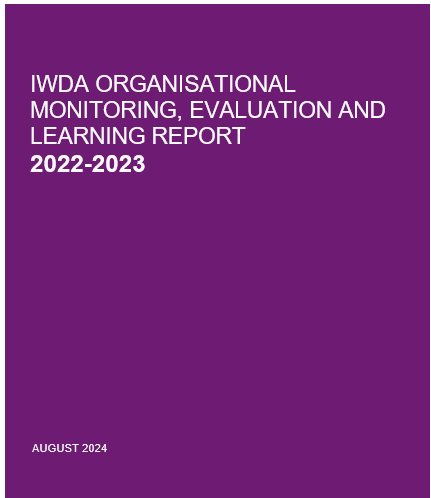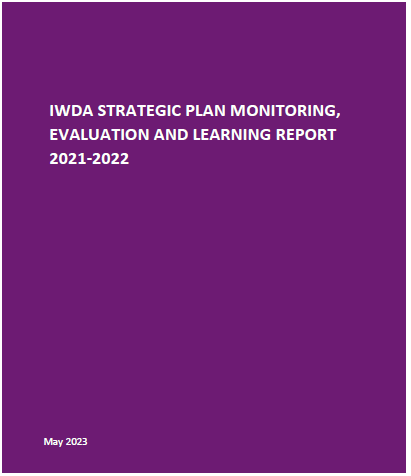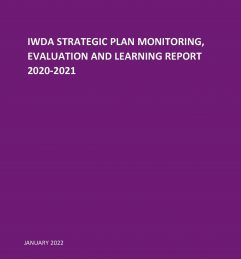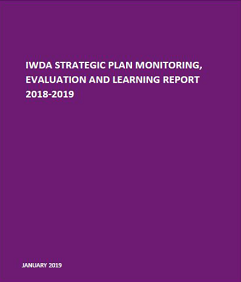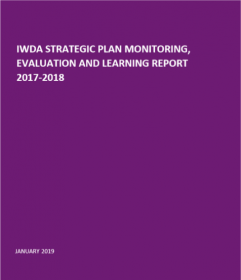Monitoring, Evaluation and Learning Report
Monitoring, Evaluation and Learning (MEL) is the process through which IWDA tracks the progress and impact of our work, and engages in learning towards continuous improvement. MEL is an important part of feminist development work, because in order to advance and protect the rights of women and girls in all their diversities, we need to know what ‘works,’ and what doesn’t.
The MEL process is undertaken to ensure we can provide evidence to our donors, partners and to ourselves on the impacts and progress of our work, and so that we can learn from our experiences as an organisation. We track various types of data through the year, such as the number of research briefs we produce or the number of new supporters we welcome, and analyse this information before integrating it into our work.
We look at areas where we’ve succeeded, the challenges we’ve faced, any unintended consequences (good and bad) of our work, and consider how we can build on our achievements.
The questions we ask of ourselves explore the impact, relevance, sustainability, efficiency and effectiveness of our work – both our programmatic work with partners and supporters, and our internal work as an organisation.
The purpose of our MEL is to:
- Demonstrate impact on the lives of diverse women and build credibility based on effectiveness – to measure and evidence how and why IWDA’s work is having an impact and our contribution to long-term change
- Practice accountability and transparency – to ourselves, our partners, networks, supporters, donors, Board, and groups of diverse women we work with
- Influence our stakeholders at the national, regional and international level – to use our achievements and lessons on how feminist change happens to influence the interests, policies and practices of others
- Empower our partners and constituencies, and enhance the voices of diverse women – to better capture and effectively address the different realities of women’s lives and understand how our work is contributing to change for women and girls
- Integrate lessons from our work – to ensure that our programs, practices and strategies are informed by careful reflection on how we work, where we have succeeded, where we have failed, and the best thinking on gender equality and women’s rights.
